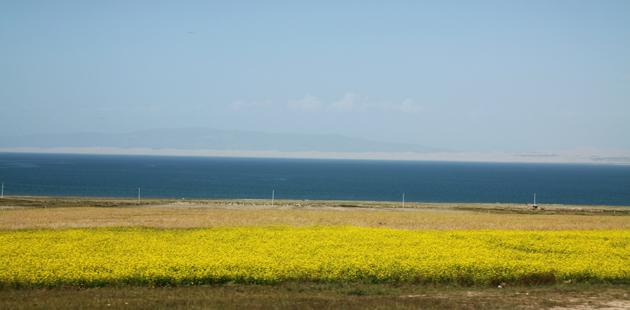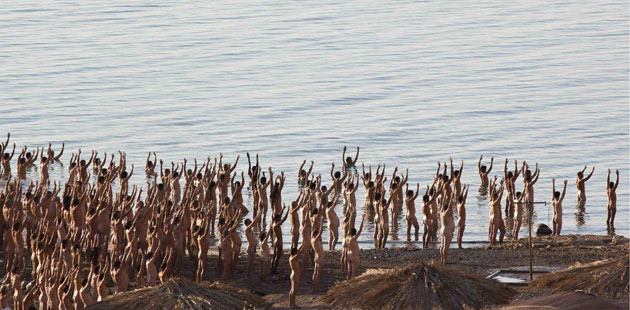Palestinian crisis looms over UN meeting
Updated: 2011-09-23 06:24
(Agencies)
|
|||||||||||
UNITED NATIONS - Diplomats scrambled on Thursday to head off a clash over Palestinian plans to seek full U.N. recognition with little visible sign of progress and a deadline some 24 hours away.
Iranian President Mahmoud Ahmadinejad briefly seized the spotlight at the United Nations General Assembly, accusing the United States of using the September 11, 2001, attacks as a pretext for attacks on Iraq and Afghanistan and condemning western support for Zionism.
But attention focused on the crisis looming over this year's U.N. meeting -- Palestinian President Mahmoud Abbas is ready to submit his application to the U.N. Security Council on Friday despite pressure from U.S. President Barack Obama to forgo the U.N. option and resume direct talks with Israel.
Obama's meetings with Abbas and Israeli Prime Minister Benjamin Netanyahu on Wednesday ended with no breakthrough, illustrating stark new limits of U.S. influence over a process that is spinning in unpredictable directions.
Obama, whose personal efforts to restart the Middle East peace process have proved fruitless, on Wednesday declared that direct talks were the only path to Palestinian statehood, underscoring unbending U.S. opposition to the U.N. plan.
Obama said the United States will veto any Palestinian move in the Security Council -- a step which would isolate Washington with its ally Israel at a moment of unprecedented political turmoil across the region.
U.S. Secretary of State Hillary Clinton, who met both Abbas and Netanyahu on Wednesday, said the United States would continue to push for a durable, negotiated peace.
"Regardless of what happens tomorrow in the United Nations, we remain focused on the day after," Clinton told reporters.
Containing the damage
Diplomats are focused on several scenarios which they hope may contain the damage.
The Security Council could delay action on Abbas' request, giving the mediating "Quartet" -- the ?United States, Russia, the European Union and the United Nations -- more time to craft a declaration that could coax the two sides back to the table.
But the Quartet may be unable to agree on a statement that could satisfy both Israel and the Palestinians, which remain divided on core issues including borders, the status of Jerusalem, the fate of Palestinian refugees and the future of Jewish settlements.
Another option, advanced by French President Nicolas Sarkozy, would see the Palestinians skip the Security Council in favor of the General Assembly, which could vote to upgrade the Palestinians from an "entity" to a "non-member state" while reviving direct peace talks.
Sarkozy's plan calls for talks to begin within one month, an agreement on borders and security within six months and a final peace agreement within a year.
The General Assembly route would require only a simple majority of the 193-nation body, not a two-thirds majority necessary for full statehood.
What remains unclear, however, is whether the Palestinians will insist on the right to haul the Israeli government or its officials before war-crimes tribunals or sue them in other global venues -- something Israel strongly opposes.
The Palestinians have pledged to press ahead with the Security Council bid while keeping the General Assembly option open.
Political theater
In what has become a regular piece of political theater, U.S. and other Western delegations walked out of the cavernous General Assembly hall during the speech by the Iranian leader.
Ahmadinejad accused Western powers of a variety of misdeeds and again questioned the September 11, 2001, attacks as "mysterious".
He made no mention of Tehran's disputed nuclear program, which Iran says is for peaceful purposes but which Israel and Western governments say is a covert drive to produce atomic weapons and shift the regional balance of power.
Ahmadinejad, who in the past has called Israel a "tumor" that must be wiped from the map, made only a passing reference to the Palestinian issue and had no comment on the Palestinians' bid for U.N. recognition.
Whatever happens at the United Nations, Palestinians will remain under Israeli occupation and any nominal state would lack recognized borders or real independence and sovereignty.
The cash-strapped Palestinians face their own political divisions, and may also incur financial retribution from Israel and the United States which could hobble their efforts to build the framework of government for their homeland.
In the West Bank, Palestinians have rallied this week to support the U.N. plan, with many expressing anger and disappointment over U.S. policy.
"Our alliance with America has not brought us anything," said Amina al-Akhras, a public sector employee, blaming reliance on international donor funds for what she described as lethargy among Palestinians living under Israeli occupation.
"We are ready to sacrifice their support and instead have a stronger national position," she said.
Hot Topics
Libya conflict, Gaddafi, Oil spill, Palace Museum scandal, Inflation, Japan's new PM, Trapped miners, Mooncake tax, Weekly photos, Hurricane Irene
Editor's Picks

|

|
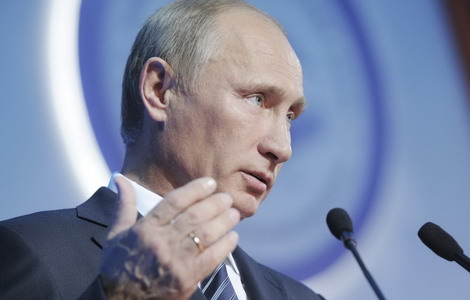
|
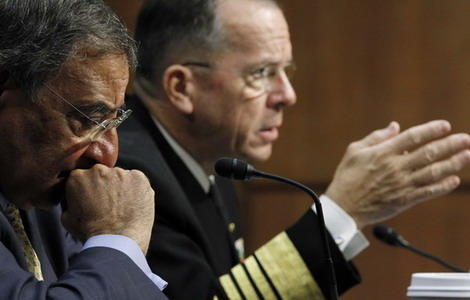
|

|
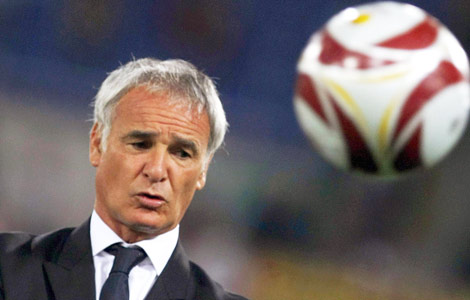
|




